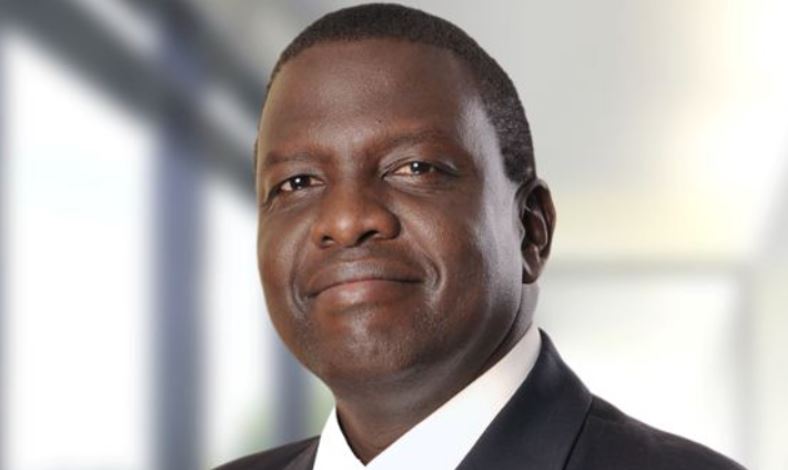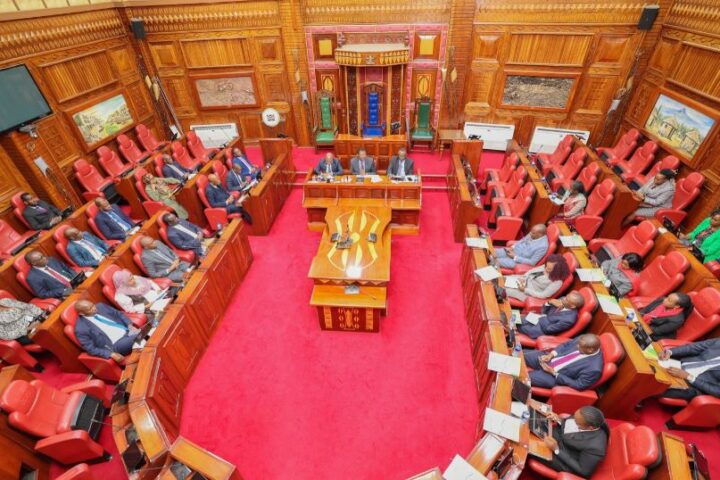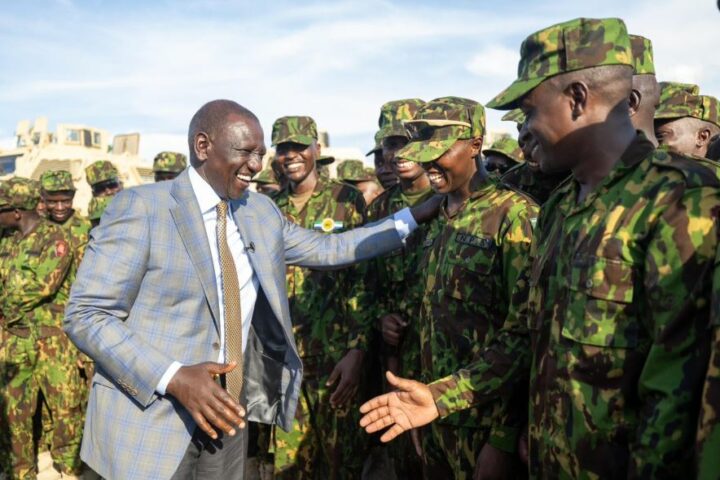
He previously served as the COO at Equity Group Holdings and Director at Kenya Wildlife Services (KWS). He also sits on numerous boards and is heavily involved in conservation.
Dr Kipngetich spoke to Jackson Biko for the Business Daily. Below are some interview excerpts.
What dreams did you have as a child growing up?
I grew up in what’s now Elgeyo Marakwet County. I was born in Iten. Mine was a very rural village life. Coming to Starehe Boys for high school was a huge leap, from the village straight to a world-class school. When you’re young, your worldview largely depends on how much knowledge you have at the time.
In primary school, my dream was to be a teacher because the most successful people were either policemen or teachers. My mom was a nursery school teacher. Teaching was very prestigious. When I joined Starehe Boys, I wanted to be an engineer.
In Form 5 and 6, my mind changed to economics. We had a very good economics teacher called Joram Ayoo. I still remember everything he taught me. That’s how I ended up doing a Bachelor of Commerce degree at the University of Nairobi.
But the one thing that Starehe never emphasised was academic prowess – it was assumed that was your business – but on a value system.
The late Griffin [Geoffrey Griffin, the founding director of Starehe Boys’ Centre] would be very unhappy if you were top of the class but your value system was wanting. He would say then that’s not a worthwhile life.
Are you altogether surprised that you are here now?
Let me tell you a little about the influence Starehe and Griffin had on my journey as a professional and get the context of this question. Griffin used to do two public service jobs simultaneously. NYS was paying his salary and Starehe was voluntary.
He was big on values and impact. You can’t have an impact if you aren’t guided by values. And it’s not about how much money you make, it’s about the service to humanity and how many lives you change, he would say.
He observed that many rich families moved from rags to riches but ended up in rags again because the generation that was handed the wealth was not handed a value system.
The older generation builds wealth but never imparts value to their children. They go into consumption and end back to rags. He warned us not to be like them.
If you have a good value system, you build from one generation to another. He emphasised stickability; staying somewhere long enough to create the impact you want, doing your very best, and lastly giving back. He inspired me to get into public service to serve, but service with impact.
My first entry into public service was teaching at the university. I was on the committee that started parallel degree programmes in universities. The first privately-sponsored student course at the University of Nairobi was Master of Business Administration (MBA), my faculty was the first one to start it.
I don’t want to call myself the father of parallel projects, those are cliches but, being on that committee changed the course of history by expanding public university access.
Through that, I wrote a paper on the devolution of power, 17 pages. Later on, in 2004, the devolution committee in Bomas called me to explain how devolution would work. Then off I went to the investment promotion centre, or Kenya Invests.
Former President Mwai Kibaki then made me director of KWS. He was looking for somebody outside conservation, with a management background to fix it and outside the politics.
After eight years, I resigned even though I thought I’d stay on for two more. I’d say the most glorious time in my life was at KWS because I entered at the age of 39 and left at 48. So I was wiser, and I put in a lot of energy because I was young.
Was the transition from public service to the private sector difficult?
Initially, it was because the circumstances made it difficult for me to stay. I could read the signals. It’s been 10 years since I left and I’ve never looked back. The principles are the same; managing a public sector and a private institution are the same, two sides of the same coin only that you’re in a sane society.
Do you feel like being known as “the guy who turned around KWS” limits you?
Yes. Because then people don’t see the capacity to run the private sector. It narrows me to the KWS guy. I look at myself as a professional manager and different institutions benefit from those managerial skills.
What price have you had to pay for ambition?
I had to limit rising high in public life because the pathways to it were not in conformity with my mindset and values.
What does that mean?
If you want to be president, it begins with being a politician. I’m sure you know by now many old ‘Stareheans’ are not very good politicians. They’re hardly in politics because of that dichotomy; your value systems and politics in Kenya are different things.
It’s difficult, you have to temper and be content to bow out at the highest level you can reach and direct your energy into charity. The third pillar.
If you’re given an opportunity to go back to public service, will you take it?
[Pause) The one position where you can make an impact at my age is as the head of public service. But I don’t see that happening and for now, it’s a distant dream. I want to focus on where I am, the private sector, and giving back to society.
You are edging towards the end of your 50s [he’s 58]. What were the lessons of your 50s?
Two things have occupied my mind in the 50s; what my children will become and what retirement will look like.
How have your children turned out?
[Chuckle] I’ve tried my best to be the best father, and I’ve been lucky, probably one of the luckiest people on earth, because I have a good family. My wife is the CFO of Standard Chartered and has been for almost 15 years.
We have two girls; my first daughter is now a third-year student at Yale University and my second is 14, Year 10 at Brookhouse Schools. They have rewarded me as a father for giving them the best.
Ideally, you give children the best education and hope they also don’t disappoint you. It makes me a very proud dad that they have excelled academically. I intend to support them in their careers and then focus on my retirement. A simple life with no complications.
You seem to have started a family late…
Yes. I met my wife at university but then she got a job with Deloitte and had to go to the UK so we had to put those plans on hold.
You waited. You are the romantic guy; waiting for love and all…
[Chuckles] Yes. We decided that we would start a family when we were both settled and it’s worked out very well. We have the ambition to take our children to the best institutions and then start thinking of retirement.
What else is there? You probably have another active life of about 15 years after which you stop doing much. Your children will then have their own lives sorted and hopefully, they become successful.
You have been largely successful in your life, but what have been some of your failures?
[Pause] I don’t know how to put it. You know failure need not be spectacular. [Laughs]. One of the things I’ve never understood is Kenya’s politics. Every time I try, I fail because Starehe teaches you to be a very rational person but our politics is so irrational.
What moment of your life were you the saddest?
[Pause] Maybe last year when I lost my mother. It’s very difficult to lose a parent. [Long pensive pause]. But we are all going the same route. Life is a relay. You know a parent is like a kindred, it’s like you share the soul. So a part of you is lost when they go.
Even if you are the one supporting them, emotionally you feel they’re supporting you. It’s like your anchor. So when you lose your anchor it’s like, ‘so what’s life all about?’ And then you start looking at your children and wonder, ‘when my turn comes, how will you feel? [Sigh].
What did you learn during that period you were grieving?
That one needs to put their house in order. Make sure that the next generation has the right values. I don’t want my children to value things. I want them to value relationships, and connections, because things you leave them here. Griffin used to encourage us to read a book titled Life After Life by Raymond Moody.
It is a book of interviews of people who had near-death experiences; people who experienced clinical death and were revived and tell the stories of what lies beyond death. It makes you question what we carry beyond life. We die but our memories remain. Are they happy or sad? Did you change people’s lives?
You speak a lot about what you learned from Griffin, what did you learn from your father?
Aaah! It’s a long story. [Pause]. Let’s not go there. But the key thing is that parents don’t appreciate the impact they have on their children. They say some things casually, but the way the information is received is very different from the way it is said.
You can say something casually but a child receives it like a bullet. So be careful what you say, how you say it, and your intention of saying it. Especially when your child has your greatest attention. Take time to reflect before you counsel a child.
There are so many things I used to say in a classroom as a lecturer. But later on, some students communicated to me on social media and said, ‘but you said this is 1996?’ [Laughs] Did I? I might not remember it but you see it had such a big impact on them.
How do you let your hair down?
Probably I should let it [down] more often. I’m a very guarded person, very private. Many people don’t know me. I’m sure even when you Google about me and my family it’s very difficult to get anything. Why? It’s because, for me, my public life is public to a certain point, my private life is just closed.
Because you’re a smart fellow with great insight, I’d like to know what you think makes a happy marriage.
[Chuckles] There are no secrets, that one I guarantee. Marriage, like everything else, is a work in progress. One thing you have to do is give it time. You can’t abdicate and expect it to work. How has mine worked? I’m an office-home guy. You rarely find me in social places.
For marriage to work, be an office-home guy…
[Laughs] No, give it time. The second one is decoupling. Decoupling is a word from the theory of systems, but it’s interpreted in different ways.
In business, a decoupled system is giving a subsystem within a system some degree of independence. A marriage must be decoupled. Which is, my wife must flourish in her career without me holding her. Similarly, the same for me and our children.
The third one is, I know Biko people try to avoid saying it, but it has to be on the table: you must work hard for resources to be put on the table for you to meet the basics of running a household. We are paying an arm and leg for our daughter to be in a top university in the world. She’s not on scholarship.
For marriage to work, you require resources to facilitate a well-functioning family. If you invest smartly, you can unlock things that can increase happiness in the household.
And investing is not investing in dead assets like building a house in the village when you visit it once a year. Buying land is a dead asset, so is planting maize, buying clothes and shoes you don’t wear.
Are you still connected to your village in Iten? Do you see yourself retiring there?
No. Definitely not. I came here in 1979. I go back for events but I am a Nairobian, for all practical purposes. Even though my heritage is Keiyo, I have not connected with my village in a long time because I hardly go back. When people go to the US, they call themselves African-American, right? I’m a Keiyo-Nairobian.








